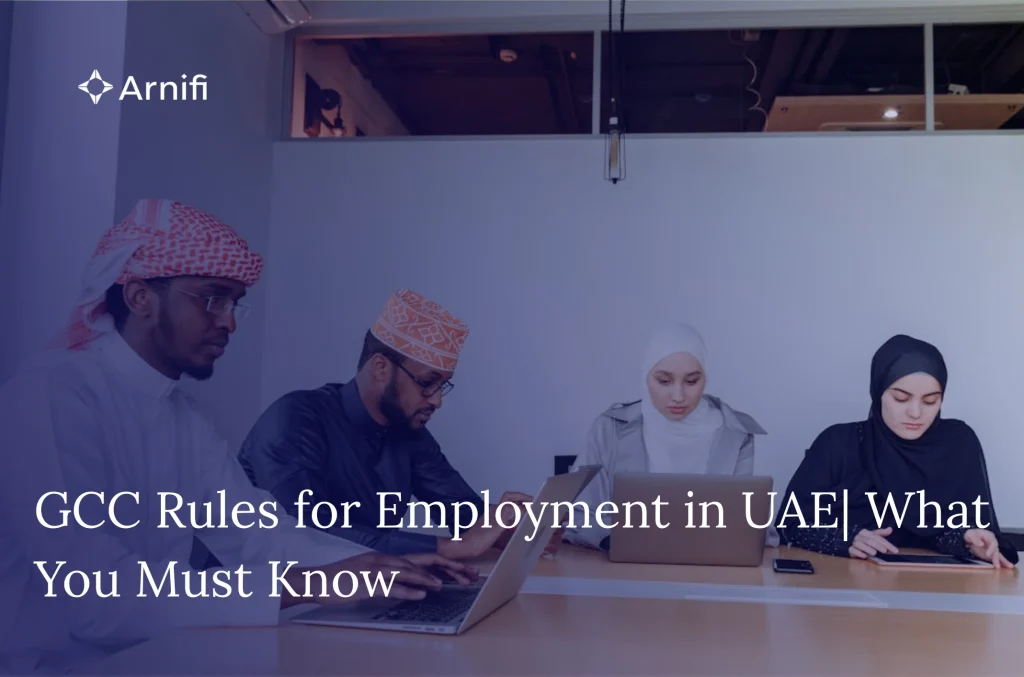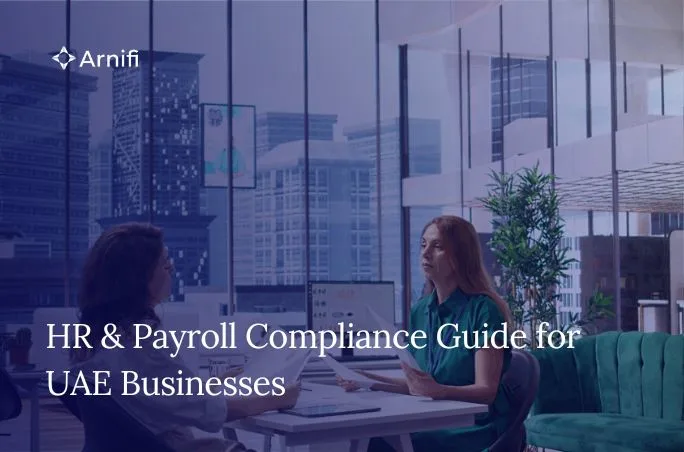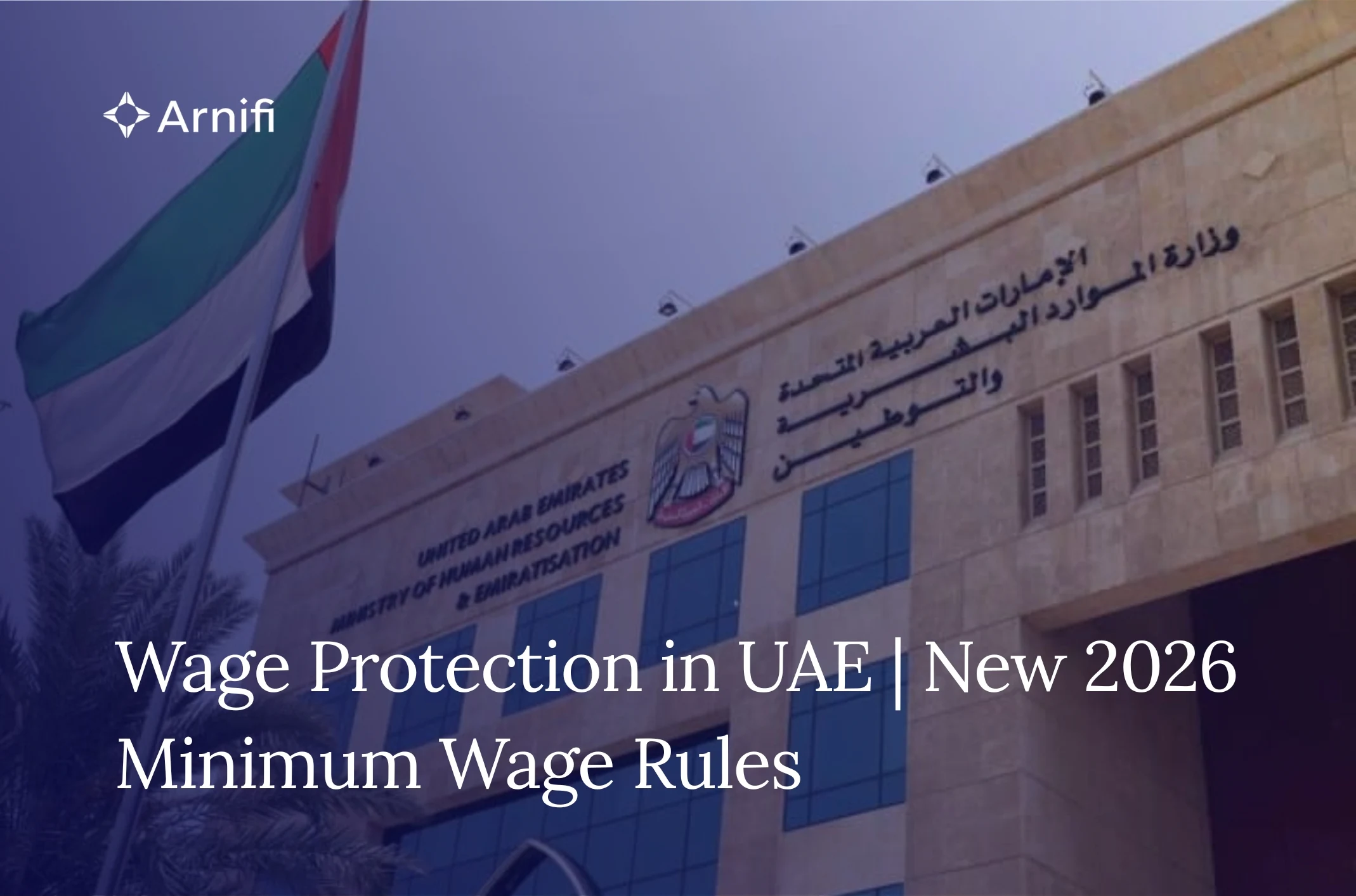Understanding GCC Rules for Employment in UAE
by Rifa S Laskar Nov 05, 2025  6 MIN READ
6 MIN READ

If you’re hiring or getting hired, you’ll want to know the GCC rules for employment in UAE inside out. These rules dictate how citizens of Gulf Cooperation Council (GCC) countries work in the UAE’s private sector, what documentation is needed, how employment contracts differ and the rights and obligations on both sides. Here, the thing is, when you understand these rules clearly, you avoid surprises. What this really means you’ll have more clarity and easier employment relations in the UAE. In this article, you’ll walk through the key eligibility criteria, the step-by-step procedures etc.
Table of contents
1. Introduction
The GCC rules for employment in UAE matter whether you’re a GCC national planning to work in the UAE or an employer who’s looking to hire one. These rules outline how citizens of GCC countries can be legally employed in the UAE’s private sector what type of permits are required, how employment contracts are structured & how labour laws apply to them. If you understand these regulations, this helps both sides to avoid mistakes, manage paperwork eastly & ensure everything aligns with the UAE labour standards. When you get these details right, hiring or working as a GCC national in the UAE becomes straightforward and transparent.
2. Why The GCC Rules for Employment in UAE Matter
When we say GCC rules for employment in UAE, we’re talking about a set of legal and administrative provisions that are applied to citizens of the Gulf Cooperation Council (GCC) countries who are working in the UAE. Here’s what you should know:
- GCC nationals working in UAE private sector are treated like UAE citizens; they enjoy equal status in contracts, benefits & employment rights.
- They must still obtain a valid work permit from the Ministry of Human Resources & Emiratisation, even without a residence visa.
- These GCC rules for employment in UAE protect both employees and employers. This ensures fair treatment, pension access & transparent hiring.
- Ignoring these rules can lead to legal trouble, incorrect hiring or missed benefits which affects both the company’s reputation and worker stability.
In short, if these rules give you a map for compliance and clarity when it comes to GCC nationals in UAE employment.
3. Types of Eligibility under the GCC rules for employment in UAE
Here’s how you check eligibility, broken into pointers for clarity:
- The employee must be a national of one of the GCC countries for example, Saudi Arabia, Kuwait, Bahrain, Oman & Qatar
- The employment is in the private sector in the UAE i.e., not necessarily government, though the public sector may have its own rules
- The employee must obtain the correct kind of work permit under the UAE law. For GCC nationals employed in the UAE private sector, a work permit is required.
- Although treated like UAE nationals in certain respects, if you’re employing a GCC national, you must still comply with the quota and Emiratisation regulatory frameworks so the “GCC rules for employment in UAE” must be seen in the context of the broader local labour law
- The employer must be registered appropriately; the job must match permissible categories & all documentation must be submitted.
So if you meet those, you fall under the scope of the GCC rules for employment in UAE.
4. Steps to follow under the GCC rules for employment in UAE
Here’s a step-by-step breakdown for employers and individuals to follow:
- Employer identifies a suitable GCC national for the role, which confirms job fit, qualifications & readiness to work in the UAE private sector.
- Employer applies for a work permit through MoHRE’s official portal, which ensures the process follows the GCC rules for employment in UAE
- All required documents are submitted accurately this includes passport, GCC ID, job offer, contract, educational certificates & employer licence details
- Once the permit is approved, the GCC national can officially start working, without necessarily needing a residence visa like expatriates
- Both employer and employee must follow UAE labour law, which covers working hours, leave & contract terms under the GCC employment rules
- Employer registers the GCC national for pension or social security schemes, if applicable, under the Insurance Protection Extension Program
5. What the employer needs to know
Here’s a handy table summarising what employers should focus on under the GCC rules for employment in UAE:
| Area | Key Requirement |
| Work permit | Must apply via MoHRE for employing a GCC national in the private sector |
| Treatment of an employee | GCC nationals get equal treatment in employment procedures as UAE nationals (private sector) under the relevant resolution |
| Contract type | Must align with UAE labour law (e.g., limited/fixed-term or unlimited contracts where applicable) and ensure all key contract elements are present |
| Social/security/pension | The employer may have to register the GCC national under the home-country pension/security scheme and comply with the Insurance Protection Extension Program |
| Compliance & non-discrimination | The UAE labour law prohibits discrimination on race, colour, sex, religion, national origin etc must apply to GCC nationals too |
| Integration with the Emiratisation quota | Even though GCC nationals have special status, employers must still observe Emiratisation rules for UAE nationals; employing GCC nationals doesn’t replace obligations for UAE nationals |
6. FAQs
Q1. Do GCC nationals need a residence visa to work in the UAE private sector?
A: No, most GCC nationals are exempt or follow a simpler process, but they must still obtain a valid MoHRE work permit.
Q2. Are GCC nationals treated exactly like UAE nationals in employment law?
A: Yes, in private sector hiring they’re generally treated like UAE nationals, though Emiratisation quotas still apply separately.
Q3. What happens if an employer fails to follow the GCC rules for employment in UAE?
A: The employer may face fines, permit delays, or legal penalties for not following the proper hiring procedures.
Q4. Can a GCC national have part-time employment under these rules?
A: Yes, they can work part-time or for multiple employers as long as proper work permits are obtained.
7. Conclusion
If you’re dealing with the GCC rules for employment in UAE make sure you treat them not as a vague extra but as a defined framework. That means ticking off eligibility if you secure the correct permit, draft a compliant contract, observe the labour law provisions and meet social/pension obligations. Get it right and you’ll have an easier hire or job arrangement.
At Arnifi, we also offer full support across services that include work permit processing, contract drafting, compliance checks for private-sector employment and tailored HR guidance for GCC nationals and expatriate hires. If you’d like help navigating these rules or putting everything in place, connect or book a free consultation today.
Top UAE Packages

Related Articles
Top UAE Packages



